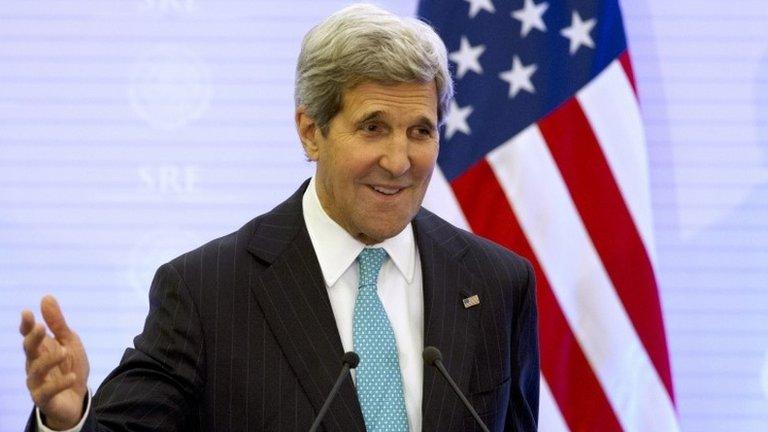US Senate approves Venezuela sanctions bill
- Published
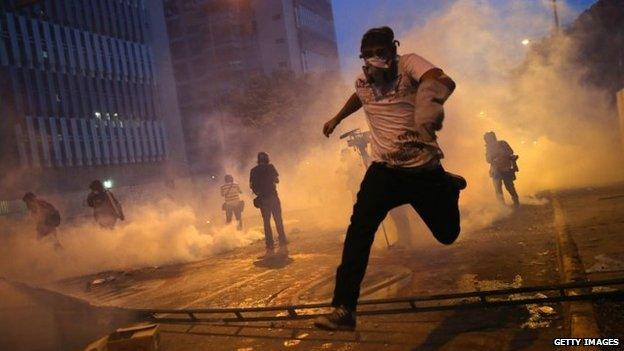
Demonstrations against high crime levels this year spread and turned into mass protests against the government
The United States Senate has approved a bill which would impose sanctions on Venezuelan officials found to have violated protesters' rights.
Thousands of activists who took part in anti-government protests which erupted across the Latin American country in February were arrested.
The bill will now go to the House of Representatives for approval.
The Obama administration opposed sanctions in the past but recently signalled it might support the bill.
Deadly protests
Relations between the two countries have been frosty since they recalled their ambassadors four years ago.
The Venezuela Defense of Human Rights and Civil Society Act , externaltargets current and former Venezuelan officials who directed "significant acts of violence or serious human rights abuses against persons associated with the anti-government protests in Venezuela that began on 4 February".
More than 40 people from both sides of the political divide were killed in the anti-government protests which took place in Venezuela between February and May.
The United Nations condemned "all violence by all sides in Venezuela" and called on the government "to ensure that people are not penalised for exercising their rights to peaceful assembly and to freedom of expression".
The government said opposition leaders had incited protesters to violence and had been planning a coup against the government of President Nicolas Maduro.
The opposition said its activists had been unfairly targeted for their political convictions.
At the height of the protests in February, opposition leader Leopoldo Lopez was arrested. He has been charged with inciting violence.
And last week, Venezuela's chief prosecutor launched an investigation into leading opposition politician Maria Corina Machado over an alleged plot to assassinate President Maduro.
'Bright spotlight'
If the bill is passed, Venezuelan officials deemed to have violated the rights of protesters could be denied visas to the US and see their assets frozen.
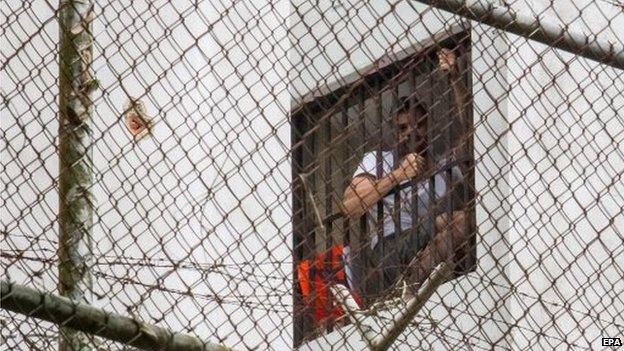
Opposition politician Leopoldo Lopez has been held since February on charges of inciting violence
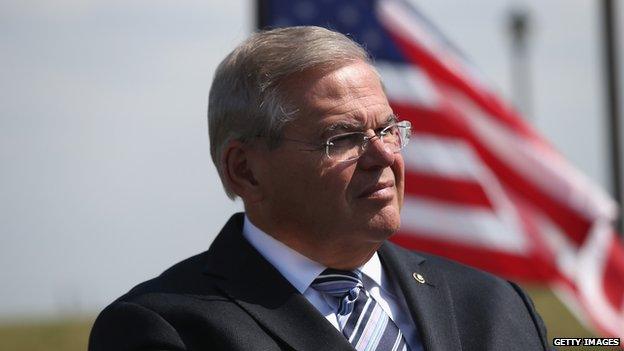
Senator Robert Menendez said the bill was an "unequivocal message" to the Venezuelan government
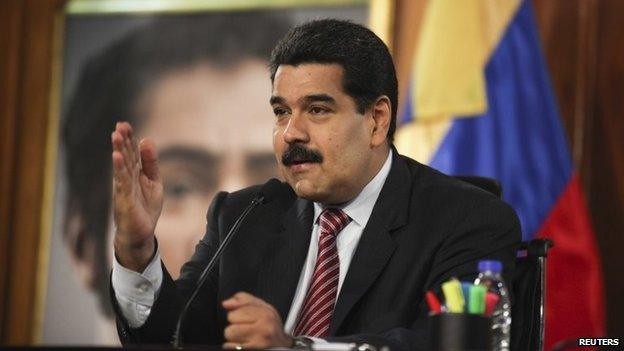
President Maduro says the threat of sanctions is just another "US intrigue"
Senator Robert Menendez, who introduced the bill, said it sent an "unequivocal message to the government of Venezuela".
"For too long, Venezuelans have faced state-sponsored violence at the hands of government security forces and watched their country's judiciary become a tool of political repression," the senator said.
"We in the United States have an obligation to shine a bright spotlight on Venezuela's abuses and must object to the severe human rights violations committed by the Maduro government and his paramilitary thugs."
Previously, the US government opposed sanctions, arguing they would interfere with negotiation efforts between the Venezuelan government and the opposition.
But last month, US Deputy National Security Advisor Tony Blinken told a Senate foreign relations committee hearing, "We would not oppose moving forward with additional sanctions."
Speaking before the bill was approved, President Maduro said no sanction the US could impose would stop the impetus of Venezuela and its regional allies towards greater independence.
He said the threat of sanctions had been "driven by an imperialistic vision of those who think they can rule and conquer us by force through blackmail and their economic power".
The bill will now go to the House of Representatives. If it is passed, it will still have to be signed by President Obama.
- Published30 July 2014
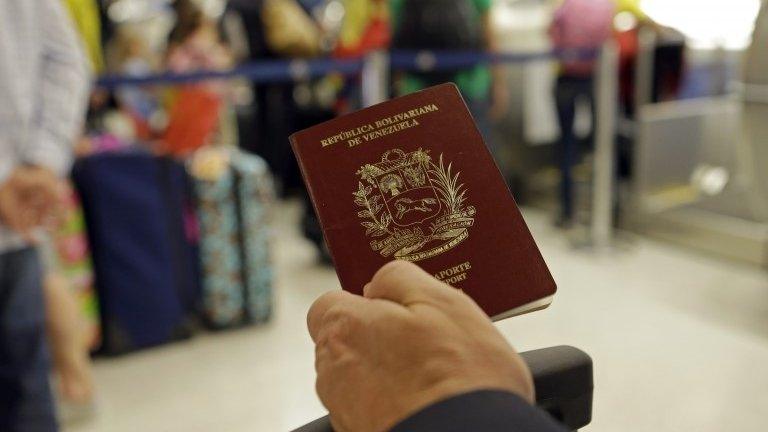
- Published29 May 2014
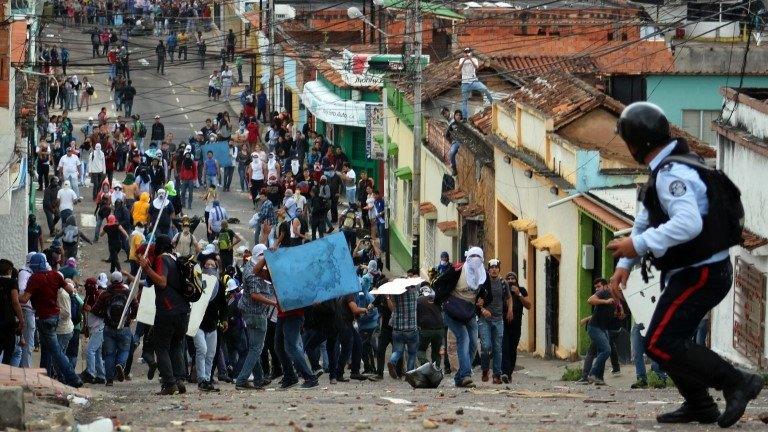
- Published21 May 2014
